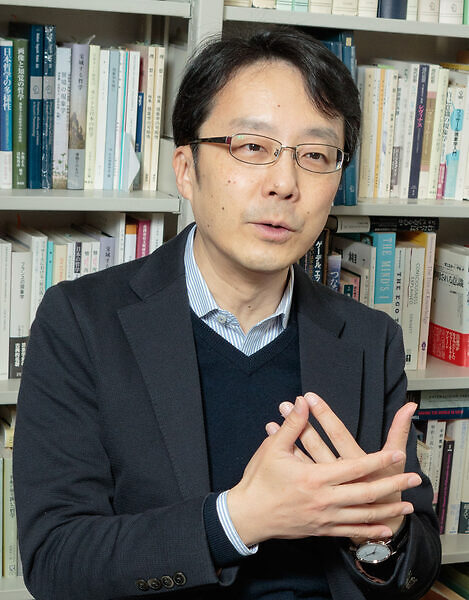[Seminar] "A twisted loop between inside and outside: Searching for an appropriate image of consciousness based on phenomenology and enactivism"

Date
Location
Description
Zoom:
Meeting URL: https://oist.zoom.us/j/97784043645?pwd=WTJrd0NJWkcwQm9yYUp2UzFSTTZBdz09
Meeting ID: 977 8404 3645
Passcode: 186676
Speaker:
Shigeru Taguchi is professor of philosophy and the director of the Center for Human Nature, Artificial Intelligence, and Neuroscience (CHAIN) at Hokkaido University, Japan.
Abstract:
Contemporary discussions on consciousness in fields such as cognitive science, neuroscience, and philosophy tend to deal directly with the question of what consciousness is. However, it would be difficult to advance a theory of consciousness without considering what it means to "think about consciousness." Instead of focusing directly on consciousness, we need to first look at what is happening in us when we think about consciousness.
In my talk, I will discuss what makes "consciousness" stand out as a specific concept. I argue that consciousness can only become distinct when it is contrasted with non-consciousness such as sleep or fainting. "Consciousness" as a concept is mediated by its negation. By keeping in mind the mediated nature of consciousness, we can prevent inappropriate hypostatization. The most prevailing form of hypostatization (or objectification) of consciousness is to think of consciousness as "something closed inside the skull." Against this idea, we should emphasize the relational nature of consciousness as expressed in its intentionality. This relational nature of consciousness boils down to its relation to the world and the body. Thus, "consciousness" ultimately means a relational event mediated by our body on the one hand, and by the world on the other. In other words, consciousness consists in the fact that our body and the world are mediated by each other as Francisco Varela suggested with his idea of "fundamental circularity." Finally, I will attempt to update our understanding of consciousness by introducing the image of a twisted loop between our body and the world. It is twisted because here is a relationship in which the world encompasses my body, which encompasses the world as experienced by me. This relationship cannot be observed as a straightforward flat circle.
Biography:
Shigeru Taguchi is professor of philosophy and the director of the Center for Human Nature, Artificial Intelligence, and Neuroscience (CHAIN) at Hokkaido University, Japan. He obtained a PhD in philosophy from the University of Wuppertal (Germany) in 2003. He has been working on phenomenology, philosophy of consciousness, and Japanese philosophy. He is the author of Das Problem des ‘Ur-Ich’ bei Edmund Husserl (Dordrecht: Springer, 2006) and two Japanese books on phenomenology. For the past ten years, he has been engaged in interdisciplinary research with neuroscientists, cognitive scientists, mathematicians, and robotics/AI researchers. His recent publications include: Tsuchiya, N., Taguchi, S. & Saigo, H. (2016). Using category theory to assess the relationship between consciousness and integrated information theory. Neuroscience Research 107, 1-7; Taguchi, S. (2019). Neither One Nor Many: Husserl on the Primal Mode of the I, in: New Phenomenological Studies in Japan (ed by de Warren, N. & Taguchi, S., Springer); Froese, T. & Taguchi, S. (2019). The Problem of Meaning in AI and Robotics: Still with Us after All These Years. Philosophies 4, 1-14; Taguchi, S. (2019). Mediation-based phenomenology: Neither subjective nor objective. Metodo 7 (2), 17-44.
Subscribe to the OIST Calendar: Right-click to download, then open in your calendar application.



